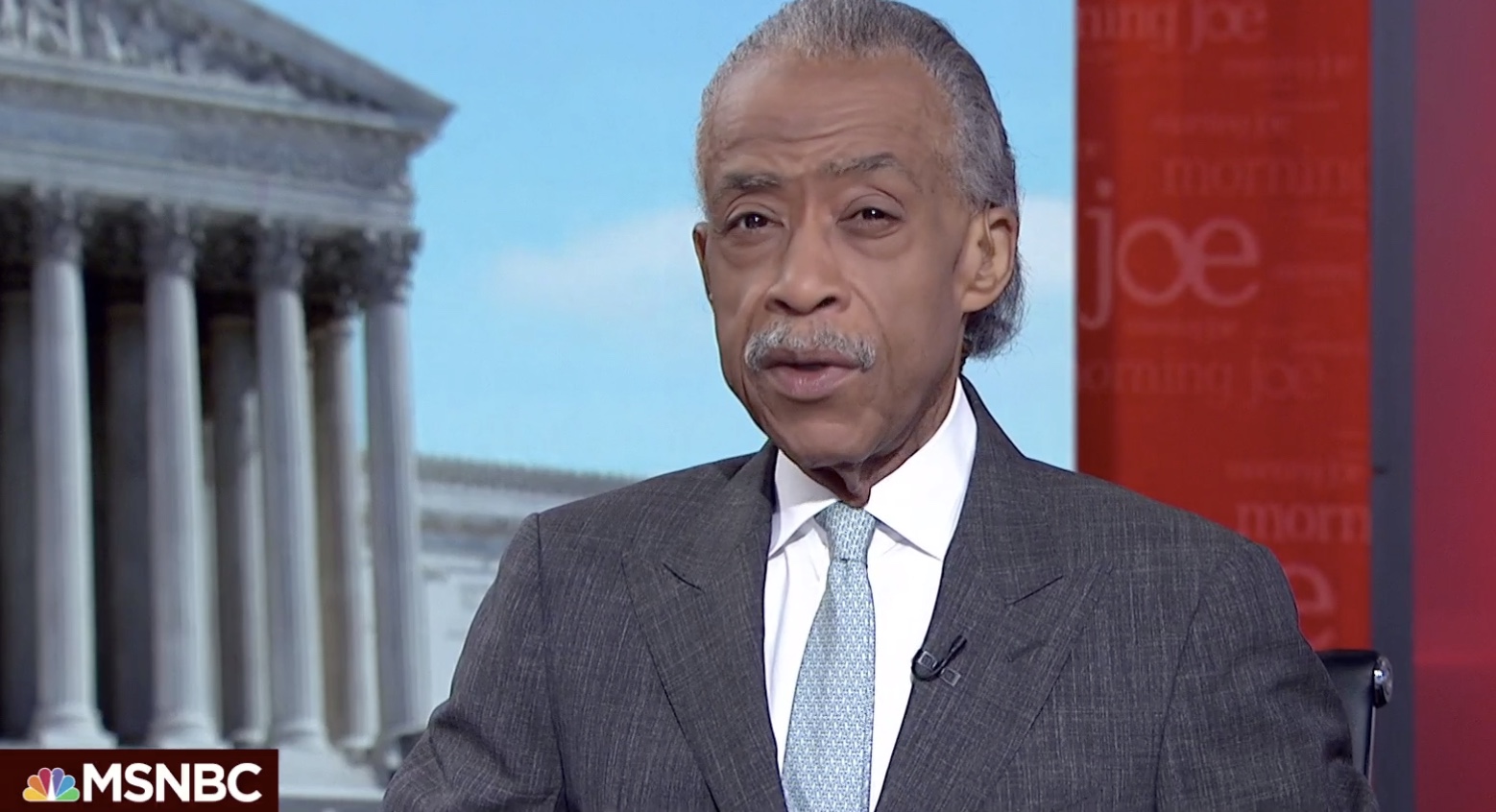Famed civil rights leader Rev. Al Sharpton has questions for the 2020 presidential candidates about where they stand on issues of race. On Saturday he hosted an MSNBC special called, “Not Just Black and White: Race and the 2020 Election.” The one-hour special featured Sharpton in one-on-one interviews with several leading 2020 candidates, and a panel of experts discussing topics like identity politics, reparations, and income inequality.
WATCH: @TheRevAl discusses his upcoming special ‘Not Just Black and White: Race and the #2020Election,' airing this Saturday at 8 p.m. ET on @MSNBC. https://t.co/TujsF9bBQ8
— MSNBC (@MSNBC) April 26, 2019
The discussion highlighted a major dilemma of the Democratic Party since 2016 — the lack of unity around voter engagement strategies.
There are more than a few Democrats — mainly white and male — who believe to win, the party must try to win back white working-class voters. But other Democrats, especially people of color, say this is a losing strategy. They believe focusing on white voters ignores that America is becoming increasingly younger and browner, and those votes are up for grabs.
As panelist, President, and CEO of Voto Latino María Teresa Kumar noted, the coalition of voters that elected Barack Obama was mostly made up of young people of color. She went on to say in 2020, millennials will be the largest voting block. This, she said, requires Democrats to “reimagine our politics .. and be bold, audacious, and not leave voters on the table.”
So far, some candidates are demonstrating ease with speaking on issues of race than others. Sen. Kamala Harris, for example, addressed how the term “identity politics” is often used to marginalize and silence people of color who want to talk seriously about racial inequality.
“I am never going to be shut up, believe, or buy what people are trying to sell about how if you’re talking about these specific issues, that it’s somehow about identity politics," Harris said. "So let’s talk about it. Let’s talk about the disparities that exist based on race in this country, they are clear.”
Reparations was the most contentious topic on the show. Sharpton asked Sen. Gillibrand, Sen. Klobuchar, and Former Rep. O’Rourke if they supported Rep. Sheila Jackson Lee’s bill to form a commission to study reparations for black people who are the descendants of those enslaved and each candidate said yes.
“I think that reparations have become kind of a political cudgel. Especially because the [right wing] is using it to scare people with this kind of caricature that it's a check in the mail,” said South Bend, Ind. Mayor Pete Buttigieg.
Though candidates were in agreement on reparations, others were not. Panelist, brand and marketing expert Donnie Deutsch, said running on reparations is a recipe for four more years of Donald Trump.
Our MSNBC #NotJustBlackAndWhite: Race and the 2020 election special is getting intense, we are addressing reparations and how 2020 candidates should talk about this issue. Are you tuned in to MSNBC? pic.twitter.com/IK7yQClNBU
— Reverend Al Sharpton (@TheRevAl) April 28, 2019
In response, Sharpton framed the case for reparations as righting the wrongs perpetrated against black people by the American government. Panelist and Axios reporter, Alexi McCammond, said educating voters about reparations is key. McCammond said in her experience, voters did not fully understand what reparations really meant, which why they did not, and do not, support it.
Alexi McCammond and I discuss 2020 candidates and reparations. #NotJustBlackAndWhite
#MSNBCSpecial
pic.twitter.com/aXsJw3vzbB— Reverend Al Sharpton (@TheRevAl) April 28, 2019
In the end, viewers also got to hear from former Georgia gubernatorial candidate Stacey Abrams — who will not be a candidate for 2020. Still, she had thoughts about race in the election and what a candidate would need to do to beat Trump.
"I think that a successful candidate in 2020 does not lead into the xenophobia, racism, homophobia, and bigotry espoused by the current occupant of the White House. The successful candidate is one who says that all of us can be successful together,” Abrams said.
Now, check these out:
Black Votes Matter, Even Behind Bars
Cardi B Wants Fans To Start Getting Involved In The 2020 Election Now
Joe Biden Is Running For President And Hired Symone Sanders As His Senior Advisor
